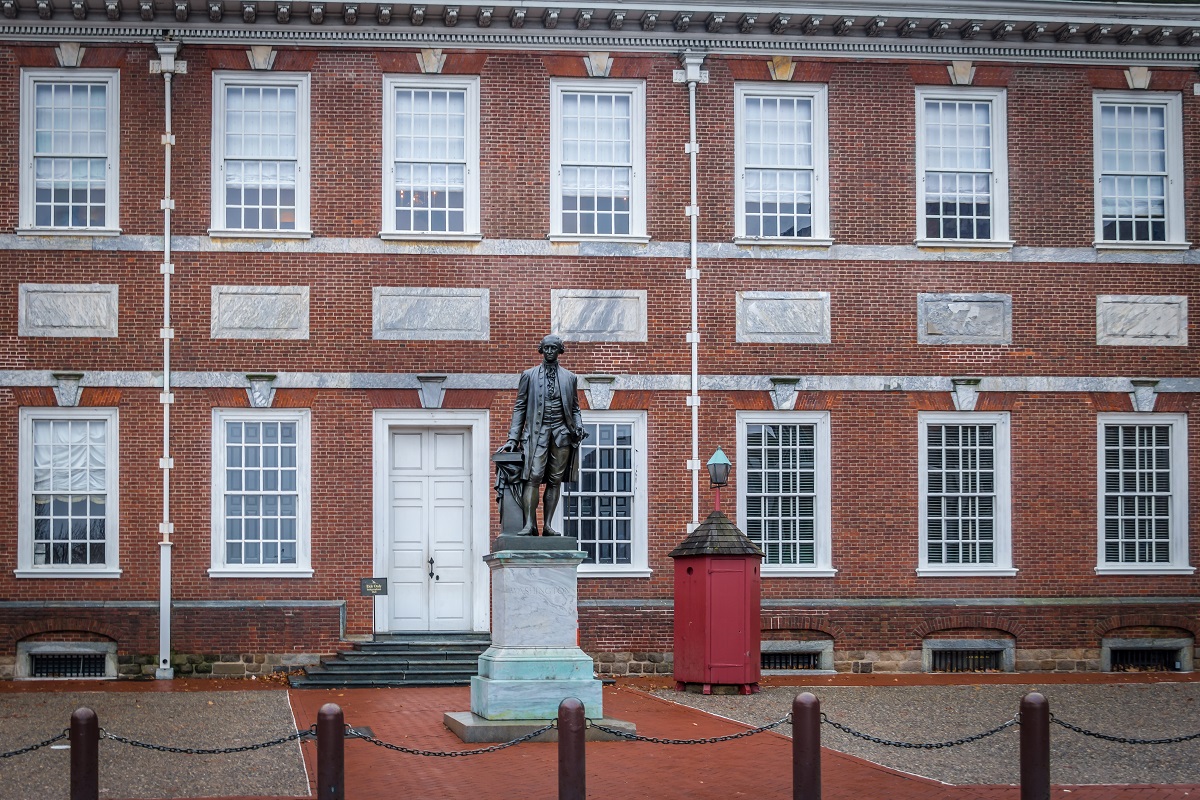Lessons on Stewardship from America’s Founding Fathers
When we reflect on America’s founders, we naturally think of their leadership, courage, and vision. But there’s another theme worth exploring: their stewardship. At its core, stewardship is about managing what we’ve been entrusted with in a way that honors both the giver and the greater good.
God calls us to be wise stewards of all that He has entrusted to us, but stewardship isn’t only a biblical ideal; it’s also a practical one. Our country’s early leaders offer rich lessons on what it means to handle resources wisely, sacrificially, and with a long-term perspective.
Manage Your Assets Wisely & Make a Generational Impact
Perhaps the most well-known of our founding fathers, George Washington was a military hero and a model of stewardship—not just in leadership, but also in how he managed his personal finances, land, and responsibilities. Washington treated his Mount Vernon estate like a business. He meticulously oversaw operations personally, experimented with crop rotation, diversified his income sources (grains, fishing, milling), and worked to make the estate self-sustaining. He took a long-term, responsible approach to managing the resources entrusted to him.
George Washington also believed in leaving behind a legacy—not just in wealth, but in values, integrity, and stewardship. Though he faced financial pressures (especially from land speculation and debt in his early years), Washington worked to pay off his debts and maintain integrity in financial dealings. He was careful not to live excessively, even when fame and position could have justified it.
He understood that his actions would shape a nation. Whether in his leadership example or his personal choices, Washington consistently thought beyond himself and managed his influence with humility and foresight. He mentored young leaders, freed the enslaved people he owned in his will (a radical act for his time), and provided for their future—showing a stewardship mindset that extended beyond material goods to human dignity and legacy.
Live Within Your Means
Author, inventor, scientist, and diplomat, Benjamin Franklin offered some of the most enduring wisdom on money management and stewardship in American history. Though he lived in the 18th century, his principles are just as relevant today.
Franklin was a champion of frugality and often warned against the dangers of debt. He believed in living below your means, thrift, simplicity, and the value of delayed gratification. Franklin viewed debt as a form of bondage that could erode freedom and dignity.
He also emphasized the importance of education, hard work, and wise time management as keys to prosperity. He saw financial literacy and personal development as essential forms of stewardship. Despite his personal frugality, Franklin was generous with his wealth and influence—founding libraries, schools, and public institutions. He modeled stewardship as a means of serving others and improving society.
Prioritize Simplicity and Frugality
Although Thomas Jefferson was a brilliant thinker and advocate for economic independence, his personal finances were often troubled—making his story a cautionary tale of straying from what we know is best. Much like Franklin, Jefferson believed debt was dangerous to both personal freedom and national stability, once writing: “Never spend your money before you have it.”
Jefferson valued simple living and warned against excess. He believed that a nation of independent, self-sustaining citizens (particularly farmers and small business owners) was the foundation of a strong democracy—where people lived within their means and depended less on others.
Jefferson saw education as essential for wise stewardship. He founded the University of Virginia and believed that an informed citizenry was crucial for wise decision-making—financial and otherwise, once writing, “Knowledge is power, knowledge is safety, and knowledge is happiness.”
Though he often failed to follow these principles himself, Jefferson’s writings emphasized the need for future-oriented thinking—whether in government, land management, or personal finances. His financial missteps serve as a reminder of what happens when we don’t prepare with a long-term perspective.
Conclusion
The Founding Fathers built a government and economy with the long term in mind—at a time when debt was seen as a serious liability. They understood the burdens debt can place on both individuals and nations. As national debt continues to be a hot topic, it’s worth revisiting their perspective: once debt is taken on, reducing it becomes far more difficult. The same principle applies to personal finances—wise stewardship requires a healthy caution toward debt and a focus on long-term goals like retirement, family, generosity, and legacy.
Many individuals in this era saw economic independence as essential to personal liberty. Controlling your financial life—rather than being ruled by debt, excess, or economic pressure—is part of what it means to be truly financially free.
CAS00001858-06-25

Leave a Reply
Want to join the discussion?Feel free to contribute!